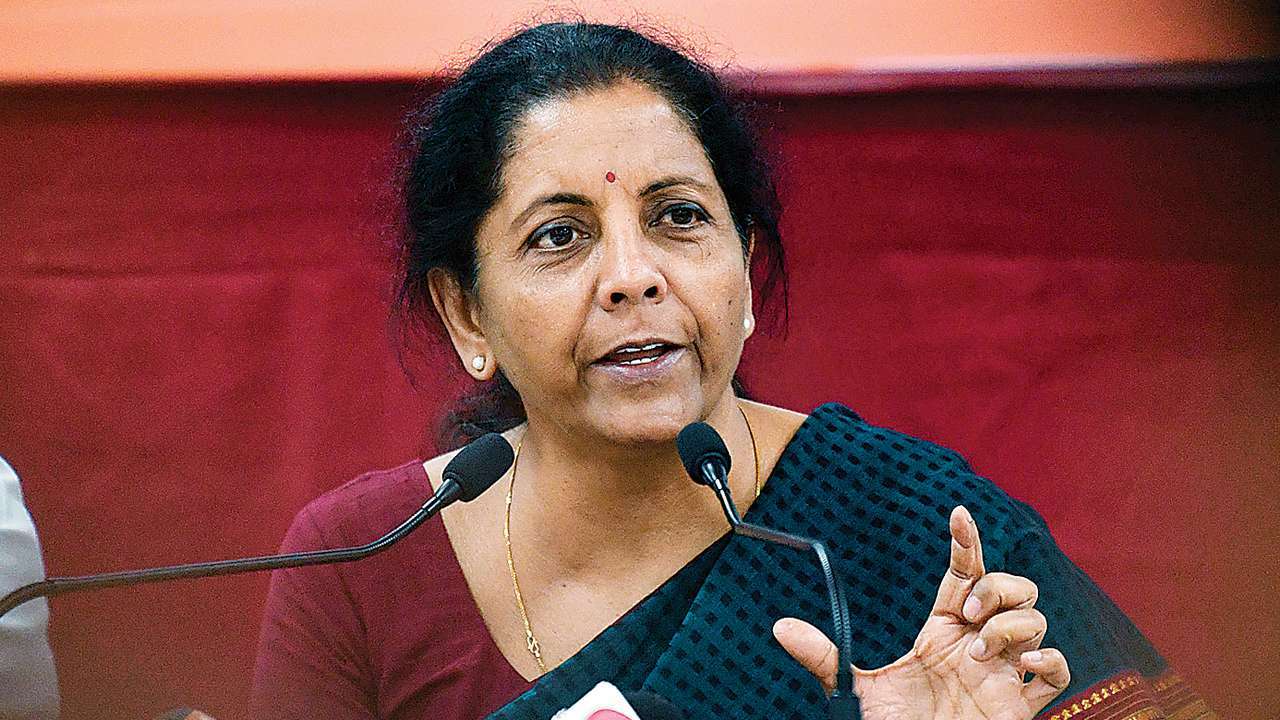In maiden UT budget Rs 38764 Cr allocated for development, Rs 62,664 for revenue expenditure, Union FM talks about economic resilience of J&K
Srinagar, Mar 17: The Centre on Tuesday presented Rs 1,01,428 crore budget for Union Territory of Jammu and Kashmir in the Parliament which is empowered to approved budgetary allocations for the union territories with legislatures when they are without elected governments.
According to wire service—Kashmir News Observer (KNO), unveiling the maiden budget for Jammu and Kashmir UT in the Lok Sabha, Sabha, Union Finance Minister Nirmala Sitaraman said the budget for 2020-21 for J&K shall cross one lakh crore mark for the first time in history.
“This is the highest ever budget envisaged for Jammu and Kashmir,” she said, adding that this is an indicator of BJP-led Central government’s commitment to make J&K a model of development.
Budget estimates
The total budget estimates for the next fiscal is Rs1,01,428 crores. Of this Rs 38,764 crore have been earmarked for infrastructure development, which shows an increase of 27% in development expenditure.
“The capital component of the budget has increased substantially. We hope to achieve GSDP growth of 11 per cent making the UT one of the fastest growing UTs/States,” reads the budget speech. The remaining Rs 62,664 crore would be utilized on salaries, pension, seventh pay commission and Leave Travel Concession commitments and other components of revenue expenditure. In her budget speech, the Finance Minister said creation of the Union Territory of Jammu & Kashmir on 31st of October, 2019 has created a lot of hope amongst the people of J&K. “There is a need to fast-track development to meet the aspirations of the people. The Government is committed to peace, progress and prosperity of the people of J&K. We have already taken path-breaking steps after imposition of Governor’s/President’s rule in the J&K,” she said.
She said improving governance has been one of the first tasks. “Some of the key reforms that have already taken roots in the UT are significantly improved financial discipline, such as mandatory e-tendering, compliance with pre-requisites such as administrative approval and technical sanctions etc. before commencement of execution of works, implementation of Budget Estimation, Allocation and Monitoring System (BEAMS), e-Kuber for integration of treasuries with RBI, online payment system (PAYSYS) etc. besides 100% physical verification and timely payments from government treasuries,” she said.
As per KNO, the Finance Minister said “while on one hand reforms are being implemented, there is equal focus on completion of projects. “The number of projects completed in State Sector is 2800, 1165 in District sector, 1930 under “Back to Village’’ Programme and 483 languishing projects under Jammu and Kashmir Infrastructure Development Finance Corporation. This bears a healthy comparison to the number of projects completed during last year,” she said.
She said the Government has also taken measures to avoid parking of funds and over ` 1,000 crore has been ploughed back in the Consolidated Fund of the Union Territory of J&K. “Some other major reforms undertaken in J&K is implementation of 73rd and 74th Constitutional Amendment Act, constitution of District Planning and Development Boards, and unbundling of Power Sector. Abolition of Toll Tax has been one of the major reforms that have helped in creation of one nation, one market. Besides all the central laws as provided under Re-organisation Act, 2019 have been implemented across the Union Territory of the Jammu and Kashmir,” she said.
She said the Government of India hopes to strengthen institutional mechanisms further for streamlining expenditure and make the UT a model of development.
“Notwithstanding some of the problems, the pace of development has shown a remarkable resilience both in terms of revenue and development expenditure. The overall expenditure has gone up by ` 5,600 crore by end of January, 2020 compared to last year. GST growth at end of February, 2020 was 13%. Significantly, growth of GST cash for December, 2019 was 40% and GST growth for February, 2020 (cash and credit) was 31%, making J&K one of the better performers on this parameter,” she said.
The Finance Minister said economic resilience is also indicated by growth of over 60 % in stamp duty collections, 7.5 % growth in excise collections, and growth of 1.7% in toll tax at end of December, 2019.
“Apple exports have been at par with last year, and export of handicrafts, crewel, shawls etc have been greater than last year. The ATM and Bank transactions have also shown positive trend as compared to last year. The macro-economic parameters show that J&K economy has risen up to the challenges of transition and continues to do so well,” reads the speech—(KNO)

